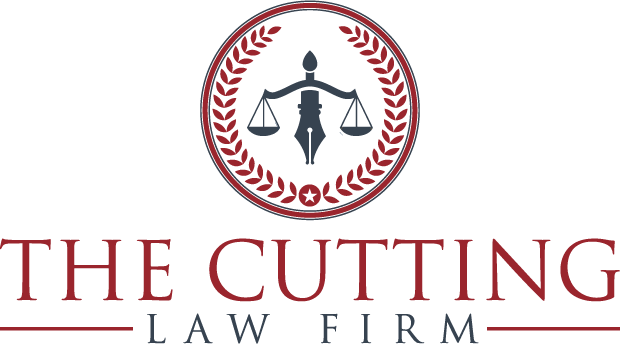When you’ve been involved in a car accident, navigating the legal landscape can be overwhelming. Choosing the right attorney is crucial for a successful outcome to your case. To ensure your attorney is the best fit for your needs, here are key questions to ask during your consultation.
1. Experience in Handling Car Accident Cases
Understanding your attorney’s experience with car accident cases can bring insights into their expertise and success rates. Ask them about their history with cases similar to yours, and whether they specialize specifically in car accident law. Having a dedicated car accident attorney, particularly in a bustling area like Jupiter, Florida, can make a substantial difference to your case’s outcome. This is not just about legal representation but about ensuring you have an advocate who knows the intricacies of local laws and the tactics insurance companies use. In fact, you might learn more about strategies a seasoned attorney employs by checking out our blog on how an accident lawyer can secure your victory.
It’s not just about how many cases they’ve handled but also the depth of their experience in dealing with complex scenarios and negotiation with insurance companies. According to a local Jupiter personal injury lawyer, having extensive experience enables attorneys to foresee possible challenges and navigate through them efficiently. Discussing their approach to these challenges can offer you a better understanding of how your attorney will handle your case under pressure.
2. Understanding of Local Laws
Local laws can greatly influence your case, so it’s vital your attorney is well-versed in them. Every state has variations in how traffic, liability, and personal injury laws apply. It is advantageous to have an attorney who not only understands these laws but also keeps abreast of any changes that could affect your case. This is especially important in areas like Jupiter, where the nuances of local law may significantly affect your compensation claims. Consult more in The Importance of Contacting a Personal Injury Attorney After a Motor Vehicle Accident to grasp how familiarizing with these laws early on is essential.
3. Proven Track Record
Explore their history of successful settlements and verdicts for other clients in similar situations. An attorney’s track record is more than just numbers; it reflects their tenacity, negotiation skills, and ability to win cases. You should inquire about past cases they feel proud of and instances where they managed to secure a settlement that surpassed initial offers. Resources like ‘Accident Lawyer Tips: Navigating Personal Injury Claims’ offer deeper insight into how successful attorneys consistently achieve favorable outcomes for their clients.
4. Approach to Client Communication
A transparent communication style with regular updates is essential for building trust. You want to ensure that your attorney is available to address your questions promptly. Find out how responsive they are to queries and how often they will update you about your case. Effective communication means more than regular check-ins, it’s about understanding the legal jargon and what the progress means for your case. Learn more about why communication is a critical factor in ‘9 Important Steps an Accident Lawyer Will Take to Ensure Your Success’ in our blog.
Effective communication doesn’t just happen; it is developed through practice and commitment from the attorney and their team. An attorney should not only be reachable but must also present clear and honest assessments of your situation. Open dialogue during initial consultations sets the stage for a collaborative relationship, significantly easing the typically intimidating legal process many face.
5. Litigation Versus Settlement Skills
Inquire about their strategies and whether they lean toward settlements or taking cases to trial. Both routes have their disadvantages and advantages depending on the situation. An attorney skilled in both can pivot depending on how your case develops, always working towards the best resolution. For more, see how an aggressive lawyer approach can lead to faster settlements.
Attorneys proficient in litigating cases have the upper hand when negotiations fail. It is crucial to select an attorney whose litigation skills align with your interests. If a swift settlement is preferable, some attorneys might use settlement track records to demonstrate their fiduciary focus and persuasive negotiating skills.
6. Understanding of Medical Issues
Whether they can comprehend the medical aspects of your case might have a bearing on the litigation process. Detailed, comprehensive understanding of medical terminology and issues can significantly affect the outcome of your case—especially when it comes to evaluating compensation. Attorneys who frequently collaborate with medical professionals often enhance their understanding, helping in securing appropriate settlements. For insights on dealing with medical issues during legal proceedings, visit this page.
Many injuries, such as whiplash or soft tissue damage, don’t surface immediately – an attorney adept in these matters will advise on seeking detailed medical examination and maintaining records, pivotal for your case.
7. Fee Structure and Additional Costs
Ensure you are clear on their fees, any extra costs involved, and their billing practices. Whether they work on a contingency fee basis, fixed fees, or hourly rates can largely influence your decision. It’s essential to discuss if there are any upfront costs or whether you will be responsible for covering specific disbursements, such as court fees or expenses for investigators. This conversation ensures no unwelcome surprises related to costs or commitments during your legal journey.
Discuss if there are any upfront costs or whether you will be responsible for covering specific disbursements, such as court fees or expenses for investigators. This conversation ensures no unwelcome surprises related to costs or commitments during your legal journey.
8. Case Management and Processes
Ask who will handle your case and what processes will be followed from start to completion. Knowing if all work will be managed by your attorney or if it’s divided among juniors or paralegals is significant. Evaluating the personnel involved in shaping your case aids in assessing quality control and accountability, ensuring it aligns with your expectations.
9. Timeline Expectations
Discuss what timeline you might expect for resolution and important case milestones. While case durations vary based on complexity and cooperation of opposing parties, a general timetable helps manage expectations. Experienced attorneys utilize well-established processes and clear communication to guide clients, as showcased in ‘Accident Lawyer Tips: Navigating Personal Injury Claims’.
10. Availability for Queries
Be certain about the availability of the attorney for any urgent queries or concerns you might have. Regular office hours, emergency contact protocols, and average response times must be transparently communicated.
11. Utilization of Investigators
Knowing if they employ investigators can be critical for a thorough and detailed case examination. A private investigator’s engagement helps in uncovering critical evidentiary information that may not be initially accessible — such as further insights into accident circumstances or independent witness statements.
Firms that utilize external resources like investigators illustrate their commitment to detail and assertiveness, potentially leading to enhanced representation and defense.
12. Handling Insurance Companies
Understanding their method of negotiating with insurance companies can offer expectation management. As detailed in Navigating Complex Insurance Claims, it is vital to uncover their strategies, as navigating insurance claims is often convoluted with legalese. Experience in direct negotiations or battling denied claims can highlight a law firm’s assertiveness and efficacy.
Whether these companies are cooperative or antagonistic, a lawyer accustomed to handling these practicalities can assertively guide your case through the necessary bureaucratic systems to ensure fair compensation.






